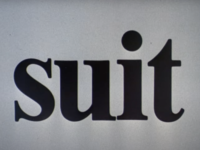Chris Frantz was the drummer for Talking Heads. Either you find that reason enough to read this book, or not. Relatively short lived but tremendously important, Talking Heads was among the handful of bands that were the essence of New Wave in the 1970s and early ’80s.
Frantz tells us it was he who started Talking Heads, which I don’t doubt. He also suggests that his later band Tom Tom Club was just as good as Talking Heads, which is incorrect. But that’s OK. The author is as fiercely proud of both bands – as he is his wife Tina Weymouth, who played bass for each group.
The drummer paints a portrait of a band emerging from art college and into the music world. What makes Remain in Love worth reading is his depiction of this mid-1970s New York City scene, and how musicians were living at the time, often just barely. These views of daily life remind me of author Will Hermes, who tells his readers not to romanticize New York of the 1970s. Chris Frantz conveys a similar squalor. Yet from bleak urban scenes comes fascinating music – including that of his own band, Talking Heads.
As Frantz focuses on the music, we visit music venue CBGB and get detailed portraits of the artists themselves. Anyone interested in the Ramones, for example, should absolutely read this book. Frantz gives a great deal of room and praise to the Ramones as a live act, not only in New York but when Talking Heads opened for them on an English tour. The B-52’s are also covered, to a lesser degree, as is Blondie. Frantz gives a generous amount of space to these and other artists of the era.
It’s clear that Chris Frantz has a career-long frustration with bandmate David Byrne, who comes off as selfish, controlling, and petty. But Remain in Love does not get lost in grinding axes, and the Byrne bashing is usually kept in check. Surprisingly, bandmate Jerry Harrison is almost a ghost in these pages. Frantz describes how Harrison was reluctant to join Talking Heads because of his bad experiences with the Modern Lovers. But after this, Harrison is rarely mentioned.
Chris Frantz says he kept the band together so it could record the groundbreaking album Remain in Light, and pretty much thereafter until what he feels was a premature end. In spite of such occasional carping, the book is largely upbeat. Some unpleasant personal topics do surface, as when Frantz describes his heavy party phase and when cocaine takes over his life. These eras are brief, but the author doesn’t sidestep them, admitting that drugs threatened his marriage.
Frantz is a fan of his own groups’ music but he is really a fan of Tina Weymouth, whom he praises lavishly throughout the book. A husband gushing about his wife might get tiresome, but one never feels that Frantz is anything less than sincere in his praise for Tina’s musicianship and in his love for her.
This book is Chris Frantz’s perspective, of course, but taken as one view of a complex band that becomes famous during an exciting era in music, Remain in Love works well.
- ‘Cold War Country,’ by Joseph M. Thompson: Books - December 2, 2024
- Acknowledging an Influence? Or Grounds for a Lawsuit? - August 9, 2024
- Dickey Betts’ Star Rose as the Allman Brothers Band Grieved - April 19, 2024




